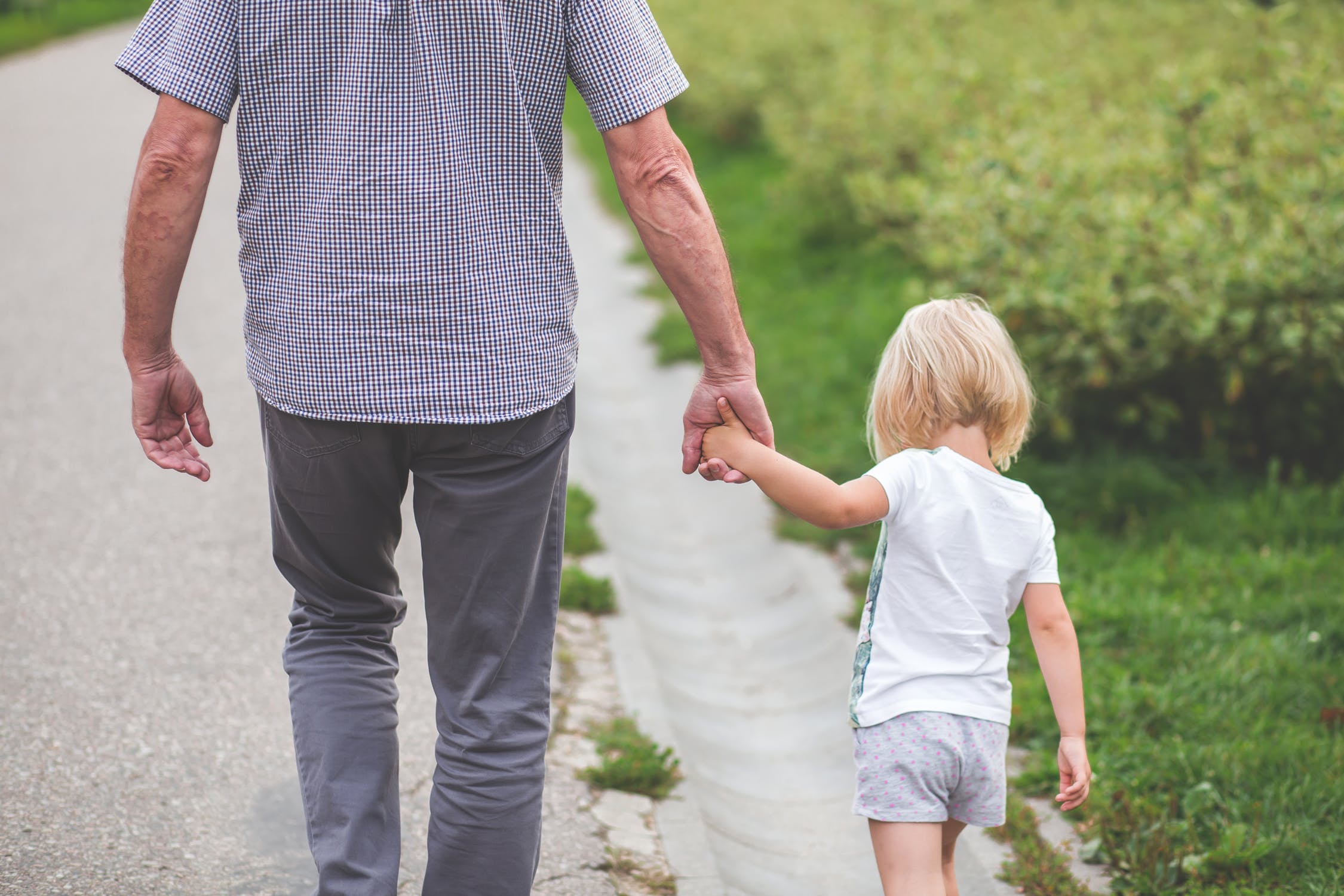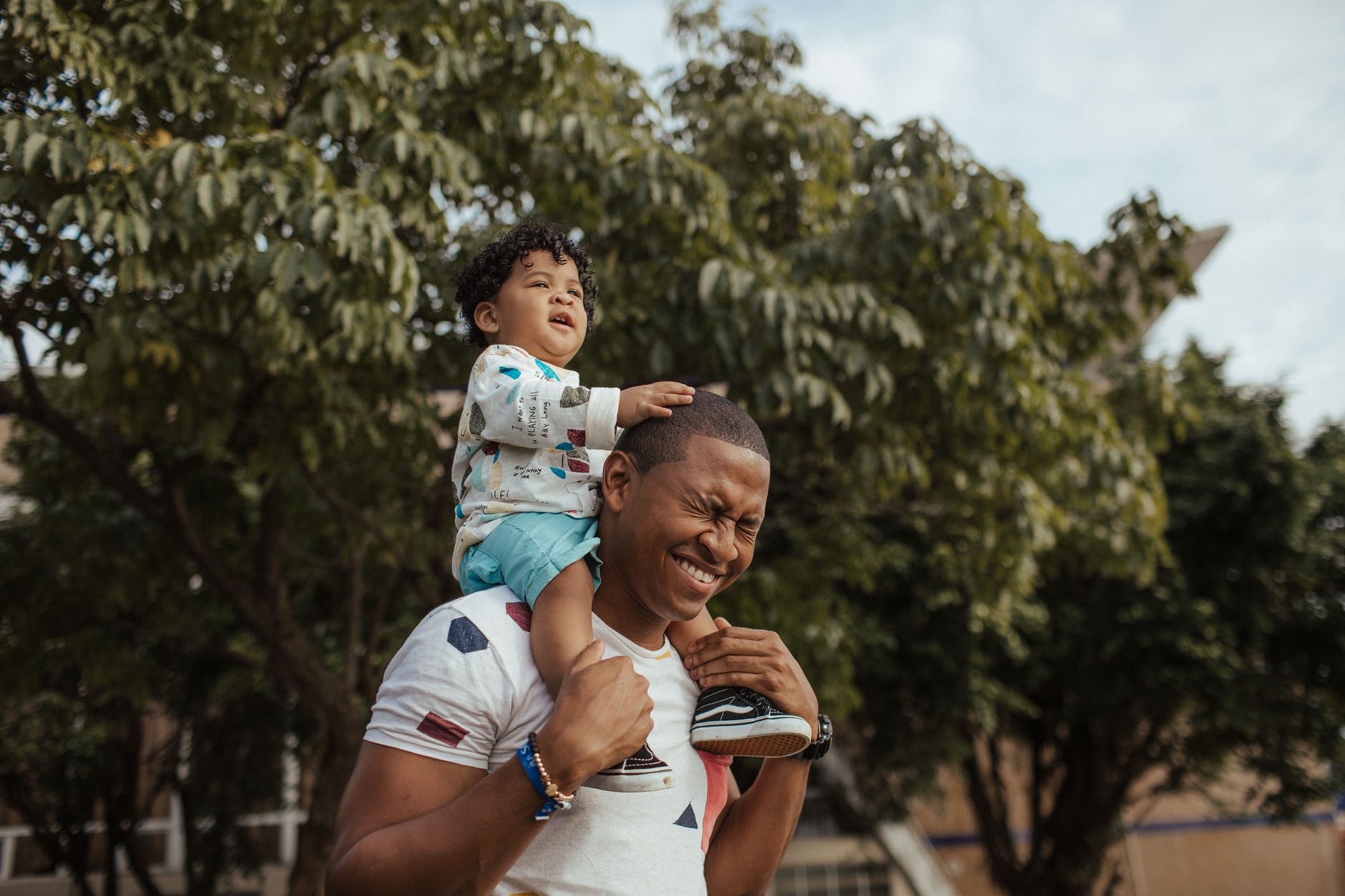Had a Dream About My Dead Baby Son That I Never Knew

After someone you love dies, almost all "blessed events" thereafter become a mix of happy-type emotions and sad-type emotions. In the midst of celebrations for graduations, promotions, new homes, engagements, marriages, births, grandbabies, big wins, and little wins, you may find your mind wandering from your present-moment elation to think "I wish [insert loved one's name] were here".
One experience that seems to bring up a tumult of bittersweet thoughts and emotions for grieving people is that of becoming (and being) a parent after the death of a parent. I know this because I've laid bare about one bajillion words on the subject myself and also because we receive quite a lot of email from readers about their worries, concerns, anecdotes, and experiences with it.
I'd like to take a few minutes to talk about some of the reasons why being a parent after the death of a parent can be hard and some of the reasons why it's great. However, I realize that I can really only speak to my own experience.
Parent/child relationships and family dynamics vary so wildly that what is true for me may not be true for someone else. So, while I hope that something here resonates with you, I encourage readers to add their own experiences in the comments below.
Why Being a Parent After the Death of a Parent is Hard:
1. The deceased parent can't share in the news
"When we have joy we crave to share, we remember them."
Sylvan Kamens and Rabbi Jack Riemer
If your parent died before the birth of your child, you may experience grief and sadness because you never got to share this news with your loved one.
Those who had an – I tell my parent everything – type relationship with their parent may have acutely felt their inability to talk to their parent the moment they realized they were becoming a parent themselves. Others may find themselves daydreaming about the intimate or elaborate way they would have shared the news.
And though people usually think of newly expectant parents exploding with elation the moment they realize they're having a baby, the truth is that the idea of becoming a parent is often met with a mix of emotions that range anywhere from happiness to trepidation and fear. Whether this is your first child or your fourth, having a baby is a big deal and many people will long for the support of their parent as they begin this journey.
2. The knowledge that they will never meet your child and vice versa
Personally, something that I grieve over and over again is the fact that my mother will never know my children and my children will never know my mother. I think about how much they would have enjoyed each other and it feels tragic to me that their lives never intersected.

3. You feel a teensy bit jealous of those who still have their parents
No one likes to feel jealous (I certainly don't), but sometimes you just can't help it. It's hard to see your friend's parents show up for the soccer games and dance recitals and know that (a) this is something your parent never got to do and (b) your child won't have your parent around to cheer them on in life.
4. You wish you had their help, support, or advice
There's no end to the scenarios in which a parent might wish for the help and support of their parent. For example..
- You may wish you had your parent to help you after your new baby is born
- Practically, you could really use their help watching your kids while you're at work or when you need a night out
- You'd love to be able to call and ask your parent for their advice when the baby runs a fever, your kindergartener is having trouble adjusting at school, or your teenager is acting like a teenager
And, though it's very likely you have other people for help and support, no one can completely fill the void left by your parent because it's often that one particular parent's support and advice that you long for.
5. Your child's childhood reminds you of your own childhood
That's a mouthful, but what I mean is this: When you become a parent, you relive many of the experiences you had as a child through the lens of being a parent. This may cause you to wonder what it was like for your own parent when you were a child; it may give you a greater appreciation for the things they did for you, and you may feel flooded by old memories.
I put this on the 'Why It's Hard' list because there's often a sadness felt when a memory feels particularly sad or nostalgic. Or when you can't reach out to ask your parent a question about the past or to show your appreciation for them.
That said, this experience can actually be both painful andpleasant. Experiencing childhood from an adult perspective may allow you to connect with the memory of your parent in different ways, to feel gratitude for everything they gave you, and to reflect upon warm and comforting memories of the past.

Why Being a Parent After the Death of a Parent is Great:
1. Your kids may provide you with a sense of purpose and joy
My eldest daughter was born less than a year after my mother died. Like many other new parents I wondered, Will I be a good mom?And I had the added concern of,Will my grief impact my ability to be a good mom? This is a concern I have since heard expressed by many new or expecting parents who are grieving.
Again, I can only speak for myself, but for me becoming a mother was a light in a dark place. It gave me a sense of purpose, it forced me to look outside of my self, it was a distraction from my grief, and it also connected me to my grief.
I think it's important to clarify, I am in no way saying "Have a kid, they'll make you feel better!" Because turns out, they're also a lot of stress and responsibility! The if, when, how, and with whom of becoming a parent will be different for everyone. And for some, the added responsibility of being a parent while grievingcan increase stress and making coping with grief more difficult.
All I can say is that for me, being a parent has given me joy and purpose during some of my darkest days. Also, kids sometimes say and do really funny things – so that's an added bonus.

When we use the phrase 'continue your bond,' what we really mean is to stay connected, to carry on, to remember, and to honor. Though we hope this is pretty intuitive, continuing bonds is a super important grief concept that you can learn more about here, here, and here.
Being a parent allows you to connect with your loved one's memory in a number of different ways.
- Through the stories and memories you share with your child: I love sharing stories with my children about my mother, just like I remember my mother sharing stories with me about her mother. My daughters never had the opportunity to meet my mother, yet I feel as though they know so much about her and the type of parent she was.
- Through the rituals and traditions you carry on: When we talk about ritual and tradition, we mean big things like holiday traditions and small things like a phrase they used to say every night when they tucked you into bed. When you carry on a ritual or tradition that was passed down to you by your parent, you create the opportunity to connect with your memory of them and also to share the memory with your children.
- Through the lens of being a parent yourself: As we mentioned above, being a parent allows you to connect with your parent in new ways. The relationships we have with our deceased loved ones aren't static. They don't get frozen in time, they continue to evolve and change. So you may understand your parent in new and different ways at the age of 20, 30, 40, 50 and so on. And the things you did to connect with your parent at 20 may be different than those things that you do now as a parent. For example, things like carrying on their traditions, following their example as a parent, learning from their mistakes, adopting their values, and so on.
As noted, this article is a reflection of my own experience and some of what our readers have shared with us over the years. Realistically, we've only been able to represent a fraction of what people experience in being and becoming parents after the death of a parent. For that reason, we hope you will share some of your own perspectives in the comments below.
Subscribe to receive posts straight to your email inbox
Had a Dream About My Dead Baby Son That I Never Knew
Source: https://whatsyourgrief.com/becoming-a-parent-after-the-death-of-a-parent/
0 Response to "Had a Dream About My Dead Baby Son That I Never Knew"
Post a Comment